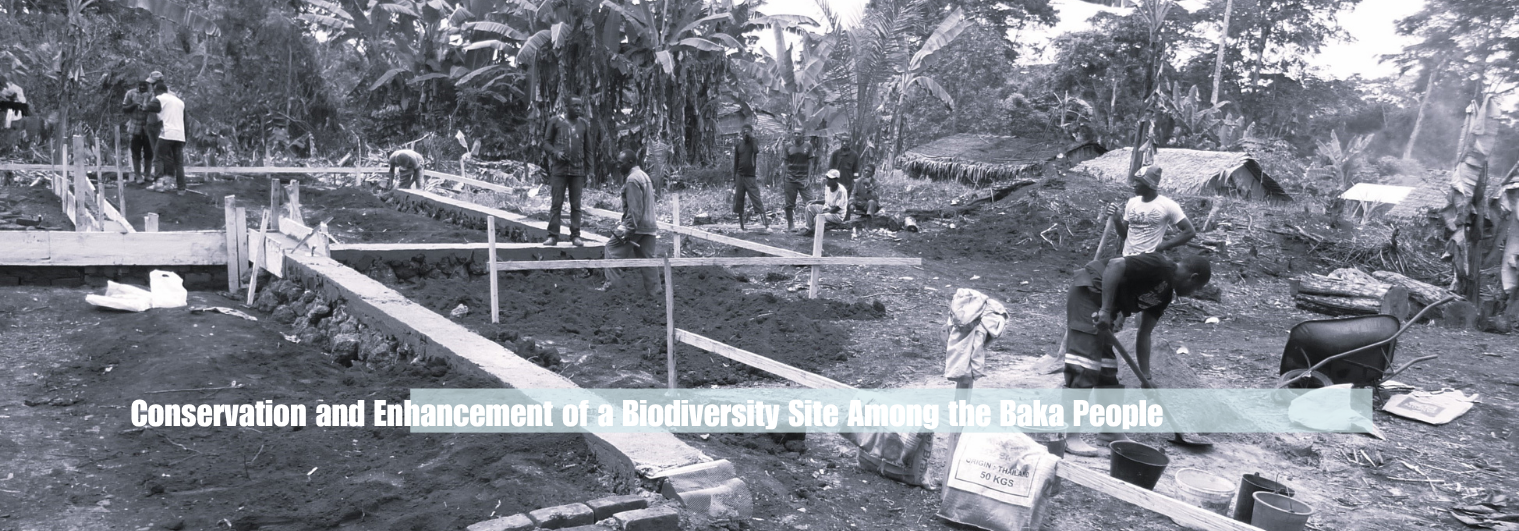Short Description
Main Objective
The central aim of the project was to safeguard and revitalise the cultural heritage of the Baka people by facilitating their relocation to a forest site near their ancestral homeland. Relocating the Baka community to this site enables them to re-establish a direct connection with their ancestral lands, which is essential for the preservation and continuation of their intangible cultural heritage. This includes their music, dances, oral histories, and deep ecological knowledge, all of which are inseparable from the forest landscape they have inhabited for generations.
In addition to the physical move, the project will includes the documentations of the Baka’s cultural heritage, contributing to a future publication that ensures these traditions are preserved, valued, and accessible to both the community and a wider audience. The conservation of traditional forest trails, used for storytelling, rituals, and navigation, will further reinforce their heritage, as these paths represent not only physical routes but also carriers of memory and identity.
Baka cultural heritage is a living and evolving tradition that must be protected and nurtured. By creating conditions for cultural empowerment and visibility, the project offers the Baka a renewed sense of pride and dignity in their heritage, while strengthening their ability to sustain it for future generations.
Outcomes
Successful relocation of the Baka community to a culturally and environmentally significant site.
Cleanup and environmental restoration of the site, including canal drainage and maintenance of heritage trails.
Documentation of intangible cultural heritage (music, dance, oral traditions) for future publication.
Provision of environmental education and training for the Baka.
Development of sustainable tourism as a long-term economic opportunity.
Reinforcement of the Baka’s identity and way of life through cultural and ecological initiatives.
Partners
Partnerships


